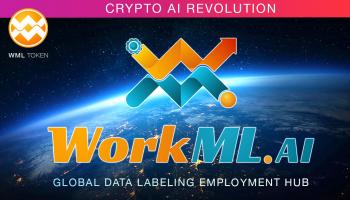The SEC wants to run Bitcoin, Ethereum, and XRP nodes
Cover art/illustration via CryptoSlate. Image includes combined content which may include AI-generated content.
The U.S. Securities and Exchange Commission (SEC) is looking for contractors that would run Bitcoin, Ethereum, and XRP nodes on its behalf. The regulator said the nodes will support its efforts to monitor risks and improve compliance, despite dozens of free blockchain explorers and analytic tools being available online.
U.S. market regulator wants to run its own nodes on Bitcoin and Ethereum
The Securities and Exchange Commission (SEC) has become notorious in the crypto community, as the agency’s attempts to police the market has frequently trumped further development in the industry. The community’s distrust of the SEC increased in the past couple of days when the news about the agency’s newest attempt to track blockchain transactions broke.
According to Trustnodes, the SEC is planning to run its own Bitcoin and Ethereum nodes, in addition to “as many as possible of the following blockchains: Bitcoin Cash, Stellar, Zcash, EOS, NEO, and XRP Ledger.”
The Commission said that running their own nodes will support its efforts to monitor risk, improve compliance, and create better-informed policies. The official Federal Business Opportunities website also stated that the subscription shall source all blockchain data from hosted nodes, rather than providing this data as a secondary source.
Data like hashing algorithms, hashing power, mining difficulty and rewards, transaction quantity and size, coin supply, and blockchain size will also be tracked, it said on the SEC’s request. The SEC’s request for quotes from contractors was published on July 2 but went largely unnoticed until now.
What does the SEC want with the data?
News about the SEC’s planned dive into blockchain analytics got mixed reactions from the crypto community. Some Twitter users saw this as a clear bullish sign, believing that it will lead to both the SEC and the U.S. government accepting the industry.
Mati Greenspan, the senior market analyst at eToro, seemed to see this as a positive development for the industry, saying that he never thought he’d see the day when the government got this involved in blockchain.
Never thought I'd see the day.
https://t.co/VGxp22gfZu— Mati Greenspan (@MatiGreenspan) July 30, 2019
However, others were more skeptical of this, saying that government surveillance defeats the purpose of cryptocurrencies. Inviting the prying eyes of the government into blockchain has the potential to jeopardize the privacy crypto transactions have.
The SEC didn’t reveal what it plans to do with the data it acquires from its contractors. There are currently dozens of advanced blockchain explorers available, so many were left wondering why the SEC would devote so much of its resources to outsourcing. However, the agency might be looking to get advanced analytics from its contractors, rather than just cold, hard data.
We are yet to see whether this leads to something positive, such as compliance automation, or puts blockchain privacy in greater danger.



































































